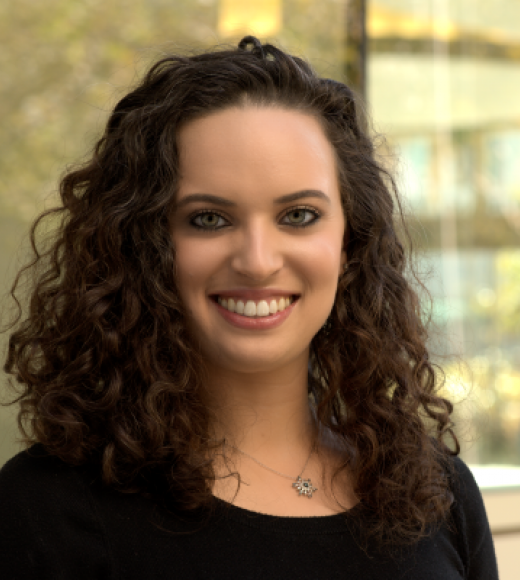Biomedical Engineering Graduate Student Caitlin Banks Recognized for DEI Efforts
Quick Summary
- Banks works to make academia and medical research more inclusive

UC Davis’ biomedical engineering (BME) department recognizes graduate student Caitlin Banks for her diversity, equity, and inclusion (DEI) advocacy.
“I was aware there was injustice in society before, but it was really George Floyd’s murder that inspired me to get involved in DEI work. That, and also what happened to Breonna Taylor and Ahmaud Arbery,” she says.
Advocacy Within and Beyond the Department
Banks began her advocacy within the Biomedical Engineering Student Association (BESA). However, she and her fellow students decided to expand their reach outside the organization to make broader changes within academia. She later got involved with the BESA Health Committee, which BESA formed to address student mental health concerns. “Diversity, equity and inclusion are a part of mental wellness,” Banks says.
The BME Health, Equity and Wellness Committee recently surveyed BME students to identify opportunities that the department could explore to improve racial justice. As a result, the BME department offers diversity training for everyone at UC Davis, including faculty. In addition, the admissions committee has changed some of their review processes for prospective students in ways that research shows can be more equitable, such as eliminating the GRE as an admissions requirement.
Banks is a member of International Women in Biomechanics. The mission of the International Women in Biomechanics (IWB) group is to foster an environment where women in biomechanics can gain support, advice, and mentorship as they progress through their careers. She’s currently developing a website for the group that showcases DEI information.
Conscious Recruitment and Inclusion Within Research Methodology
Her biomedical research focuses are neurophysiology and biomechanics, and she’s wrapping up her dissertation before graduating this spring. She hopes to identify a biomarker that clinicians can observe to understand which stroke patients respond well to specific treatments.
“I’d like to see the inclusion of a more diverse group of research subjects, both women and people of color, in stroke research,” she says.
To Banks, inclusion is welcoming diverse people and explicitly recruiting members of under-represented groups. For example, she seeks research subjects that represent the Davis/Sacramento area and the state of California populations with her research.
Beginning with Learning and Empathy
She says that the BME department is getting better at addressing DEI issues. “People are getting more mindful, using more inclusive language. We’re more aware of how what we say can affect people. We’ve held trainings, and people are asking questions about topics like microaggressions; they’re learning.”
She’s pleased to see the Justice, Diversity, Equity and Inclusion (JEDI) trainings being offered and hopes more faculty attend in the future.
To Banks, DEI is a never-ending learning process. “People need to accept that there’s a lot they don’t know about others’ experiences. But if we learn about our effect on others, we can change. Of course, it takes empathy to put what we learn into practice, but to some degree, we’re all capable of empathy.”
Banks says that more fundamental, systemic change goes beyond inclusive language and interpersonal behavior that needs to happen in society. However, she and her fellow graduate students are doing what they can with their influence by educating themselves and others on DEI issues and advocating for broader change.
